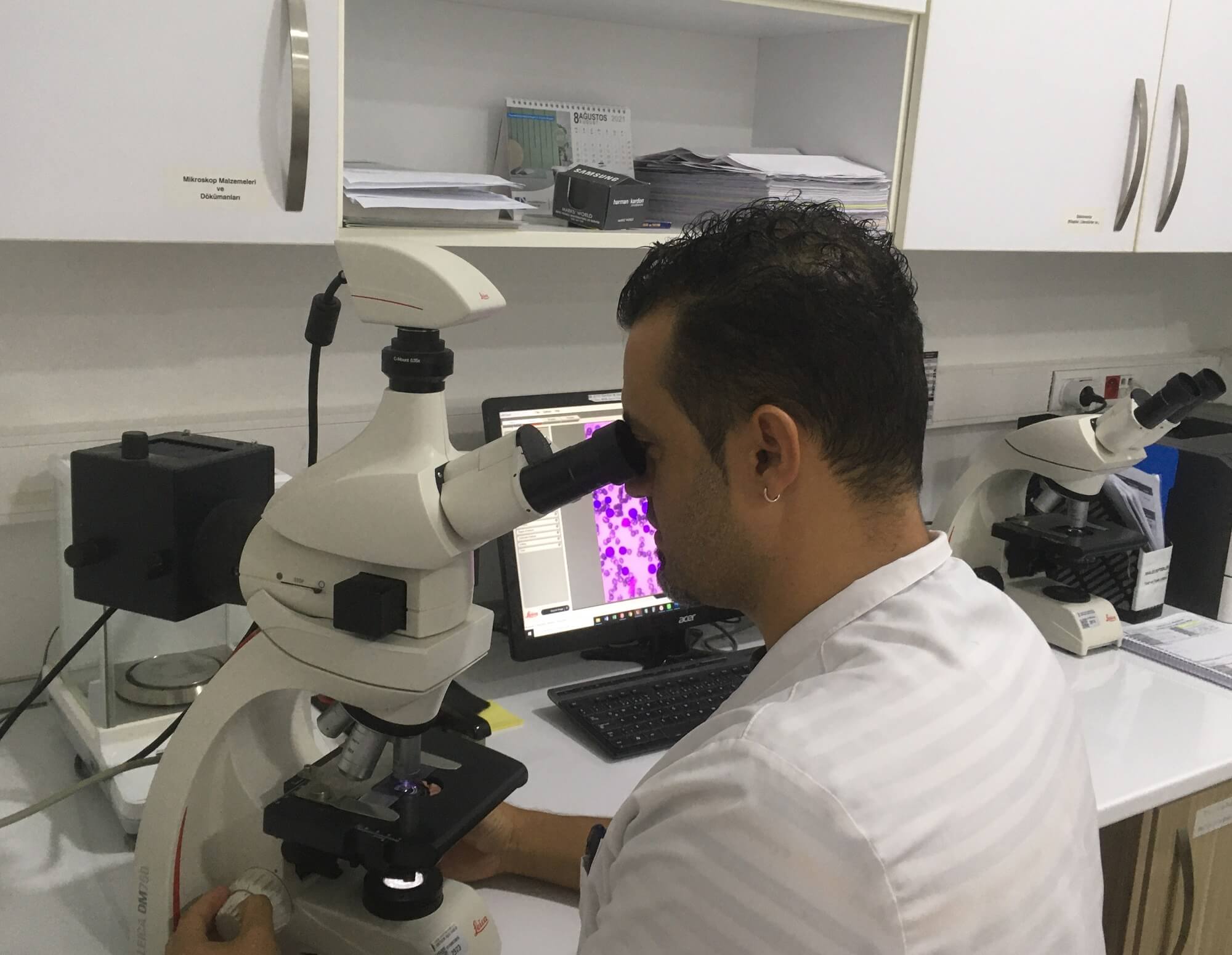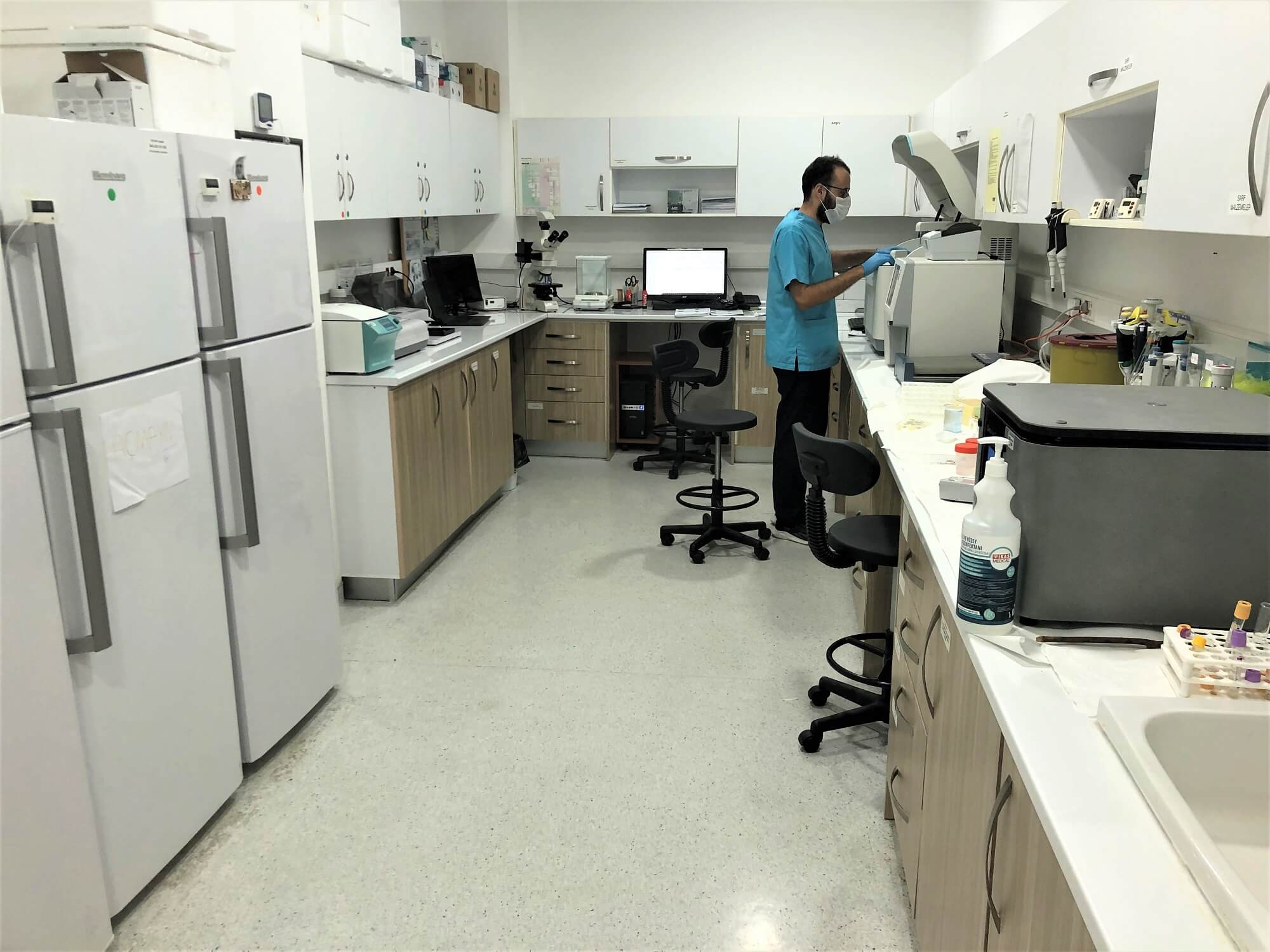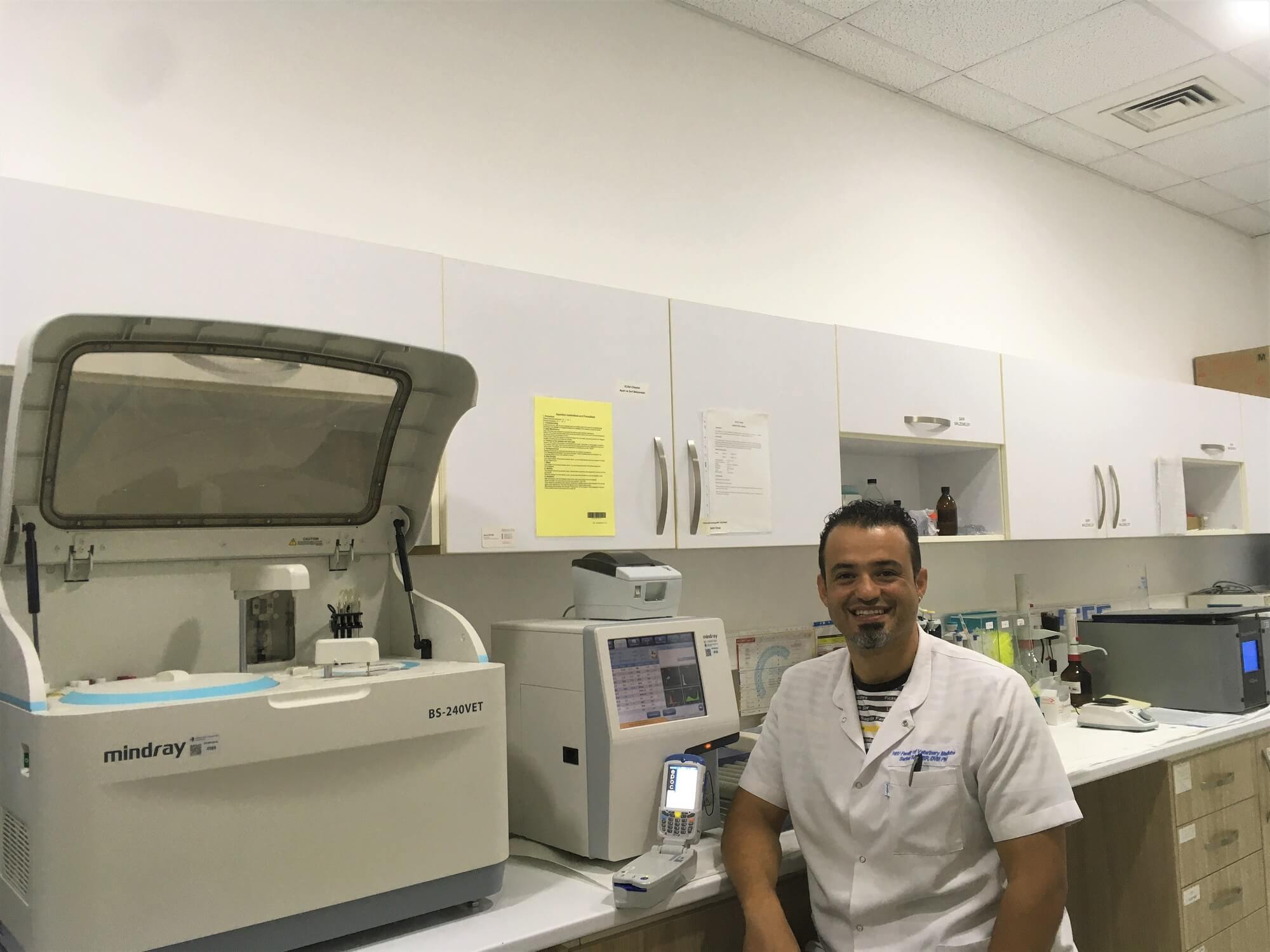
As in humans, a rapid and reliable diagnosis is required for an effective treatment process in animal diseases. For this, a competent team and analyzes carried out in a well-equipped laboratory are of utmost importance. Near East University Faculty of Veterinary Medicine Animal Hospital Diagnostic Laboratory stands out as the only private veterinary laboratory providing service in the TRNC. Near East University Faculty of Veterinary Medicine Animal Hospital, which offers many services that people expect from a hospital with its equipment and facilities, provides many laboratory services with its state-of-the-art modern infrastructure with the modernization it has carried out in the diagnosis laboratory.
Tests for the diagnosis of some parasitic and viral diseases with the immunofluorescent antibody technique, quantitative hormone measurements (thyroid and steroid hormones) in dogs and cats by ELISA, gall acids measurement, fructosamine test for diabetes, quantitative BHBA test for ketosis in cattle and diabetic ketoacidosis in dogs and cats are just a few of the tests that can be performed only at the Near East University Faculty of Veterinary Medicine Animal Hospital Diagnostic Laboratory on the island.

State-of-the-art clinical veterinary laboratory services
Near East University Animal Hospital, which upgraded its automatic biochemistry and complete blood count (hemogram) analyzers processed by special software to top models with the latest technology, has thus reached a serious diversity in terms of both test methods and types and their applicability to animal species. In addition, it has taken its current level one step further in terms of providing fast and accurate results. Moreover, it meets the laboratory testing needs of not only its own patients, but also patients referred from external veterinary clinics.
The Near East University Animal Hospital Diagnostic Laboratory, which provides services in accordance with national and international quality standards (ISO17025) in the field of veterinary laboratories, especially the directives of the Animal Health Organization (OIE-Manual of Diagnostic Tests and Vaccines for Terrestrial Animals), employs well-trained specialist veterinarians and laboratories. While protecting animal health with the studies carried out by its staff, it also offers important opportunities for the students of the Faculty of Veterinary Medicine to develop their knowledge and skills related to laboratory discipline.

Assoc. Prof. Dr. Serkan Sayıner: “We are more than a laboratory. With our scientific expertise and passion, we also support patients, grow farms and research businesses every day, who are led by veterinarians serving in outpatient clinics.”
Near East University Faculty of Veterinary Medicine Animal Hospital Diagnostic Laboratory Supervisor Assoc. Prof. Dr. Serkan Sayıner, emphasizing the importance of the diagnosis process based on scientific laboratory analyzes for a fast and accurate treatment in animal diseases, stated that they meet a very important need in veterinary services throughout the country with their laboratories where they have completed modernization studies. “With our diagnostic laboratory, we serve not only our own patients, but also patients referred from external veterinary clinics,” said Assoc. Prof. Dr. Serkan Sayıner, and further stated that, through the opportunities they have, they carry out scientific studies for the treatment of animal diseases, and for many applications that will return to routine in the future.
Assoc. Prof. Dr. Serkan Sayıner said, “Although we have similar processes with many different laboratory disciplines in terms of Veterinary Laboratory applications, we have two fundamental and very important differences. This is the diversity of biological specimens and animal species we study. There are differences between animal species by nature. In terms of laboratory, this affects critical laboratory processes such as sample type, sample acceptance, sample preparation for testing, analytical method selection and method validation (which may differ significantly from type to type) and application, assessment of results, and rework if necessary. For this reason, laboratory services for animal health should be carried out in veterinary laboratories that have the appropriate equipment to meet this need and have a specialist veterinarian and technical team.”